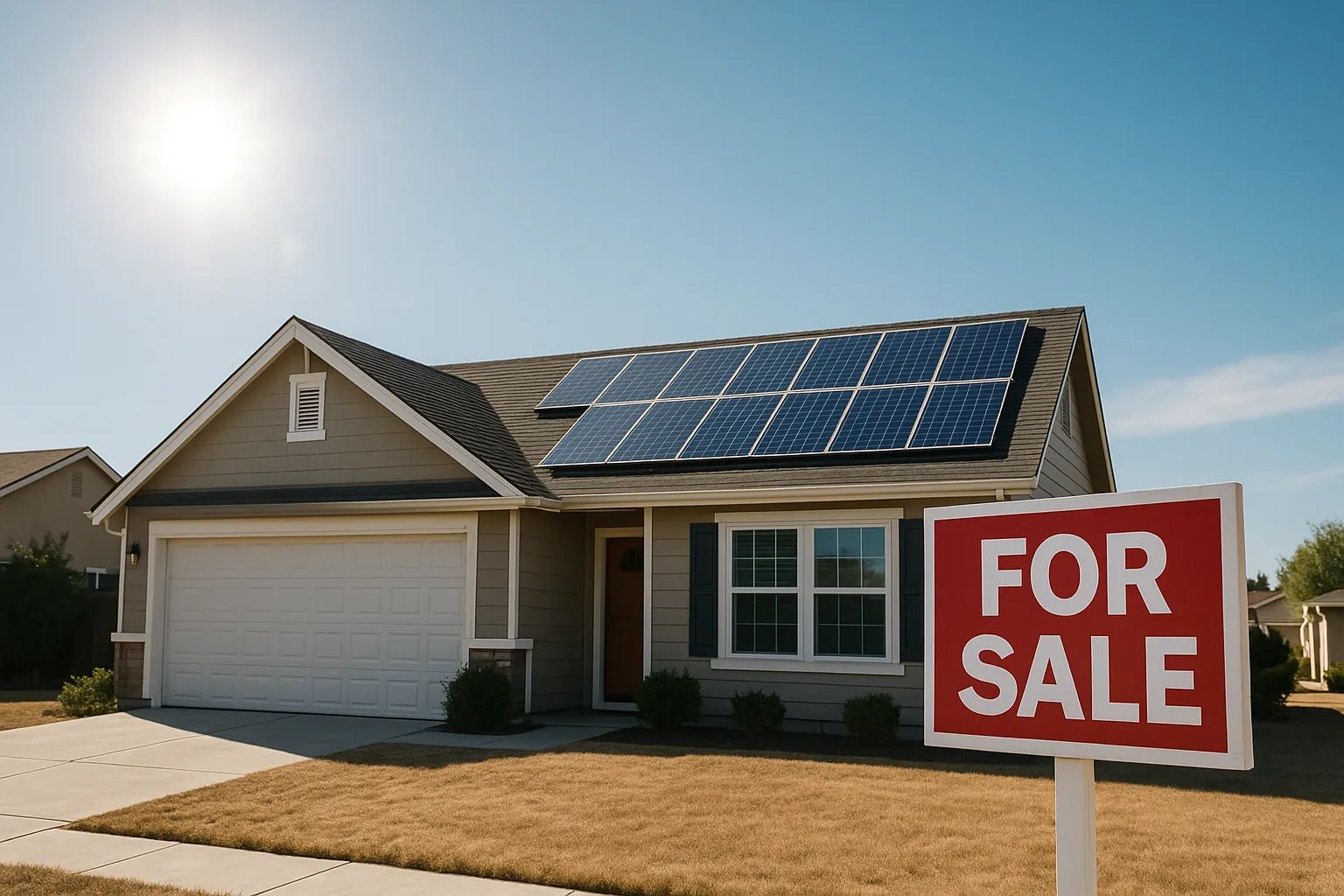
This post was last modified on July 8, 2025.
California’s 2025 Solar Mandates will reshape the housing environment, requiring most new homes to feature solar panels. While this could raise initial home prices by approximately $8,400, the potential for monthly energy savings and increased resale values presents a complex scenario for buyers and sellers alike. Understanding these interactions is significant as the market evolves, but the real question remains: how will these changes influence buyer preferences and builder strategies moving forward?
Understanding the 2025 Solar Mandate Requirements
While traversing California’s evolving energy terrain, it’s significant to understand the 2025 Solar Mandate requirements, which are designed to enhance sustainability in new constructions.
This mandate, part of Title 24, requires solar panels for most new residential and select commercial buildings. You must adhere to specific solar panel specifications, ensuring that systems are appropriately sized to meet a building’s annual electricity needs based on factors like size and energy usage.
Installation guidelines dictate that these systems be integrated into the electrical infrastructure. Non-compliance can result in delays in building permits, emphasizing the importance of understanding these requirements. Additionally, the growing popularity of sustainability and eco-friendly homes is likely to influence buyer preferences in the market.
Economic Impact on Home Values
As California implements the 2025 solar mandate, understanding its economic impact on home values becomes significant for both buyers and sellers.
The upfront solar panel costs may raise new home prices by approximately $8,400, potentially increasing monthly mortgage payments by about $40. However, these costs can lead to monthly energy savings of around $80, making homes with solar systems attractive to buyers.
While only a small portion of the housing market will be affected, homes equipped with solar panels may see a resale value increase of 4.1% to 10%.
This market premium could diminish over time as solar integration becomes more common, impacting overall home values and affordability in California’s housing market. Additionally, the California Solar Initiative provides incentives that further enhance the appeal of solar-equipped properties.
Environmental Benefits of Solar Integration
Integrating solar energy into California’s residential environment brings significant environmental benefits that extend beyond individual homes.
By adopting solar systems, you’re contributing to a cleaner atmosphere and improving public health.
Key benefits include:
- Reduced Greenhouse Gas Emissions: Each solar installation offsets several tons of CO₂ annually, supporting California’s goal of carbon-free electricity by 2045.
- Improved Air Quality: Solar-powered homes decrease local emissions of harmful pollutants, helping to alleviate respiratory issues in areas with poor air quality.
- Resource Conservation: Utilizing solar energy reduces dependence on nonrenewable resources, promoting sustainable practices that benefit the environment.
These collective efforts not only enhance your living environment but also contribute to broader environmental stewardship in California. Additionally, investing in solar energy can improve property profitability by increasing the overall value of homes in the market.
Implications for Home Buyers and Sellers
The shift towards solar energy in California has significant implications for home buyers and sellers in the housing market.
As a buyer, you’ll notice increased initial costs for homes with solar panels, but these investments can lead to long-term savings on energy bills and enhanced property value. You can leverage financing options that include solar costs in your mortgage, potentially securing favorable interest rates.
For sellers, having a solar-equipped home can differentiate your property in a competitive market, attracting buyers who value energy efficiency. Additionally, you may command higher sales prices, as solar installations are now regarded as important features.
Both parties must also comply with regulations to guarantee legal adherence during transactions.
Future Trends in California’s Housing Market
While California’s housing market faces a changing environment in 2025, several key trends are shaping its trajectory.
You can expect:
- A 10.5% increase in home sales, with around 304,400 transactions.
- Median home prices rising to $909,400, reflecting a 4.6% growth.
- Improved housing inventory, providing buyers with more options.
These shifts will enhance market competition, pushing homebuilders to adapt home design to meet the new solar mandates.
As lower interest rates at 5.9% stimulate buyer activity, you might see a moderation in price growth, offering some relief to affordability concerns.
Frequently Asked Questions
Are There Any Financial Assistance Programs for Solar Installation Costs?
Yes, you can benefit from federal incentives like the 30% solar Investment Tax Credit and local rebates that greatly reduce installation costs. These financial assistance programs make shifting to solar energy more affordable for homeowners.
How Will the Mandate Affect Home Insurance Rates?
The mandate’s implementation will likely increase insurance pricing due to heightened risk assessments associated with solar installations. Homeowners may face higher premiums reflecting the increased replacement value and potential risks linked to solar systems.
Can Homeowners Opt-Out of the Solar Requirements?
You can’t generally opt-out of solar requirements unless specific exemptions apply. Homeowner options are limited, primarily focused on substantial renovations, meaning most new constructions must comply without any alternative paths for avoiding installation.
What Are the Maintenance Costs for Solar Systems?
Solar panel upkeep typically costs between $150 and $500 annually, depending on system size. Regular maintenance enhances system performance and efficiency, ensuring you maximize energy production and minimize long-term financial risks associated with your investment.
Will the Mandate Impact the Resale Process of?
The mandate likely boosts resale value by aligning with buyer preferences for energy-efficient homes. Solar-equipped properties may sell faster and at higher prices, reflecting the growing demand for sustainable living and reduced energy costs.



